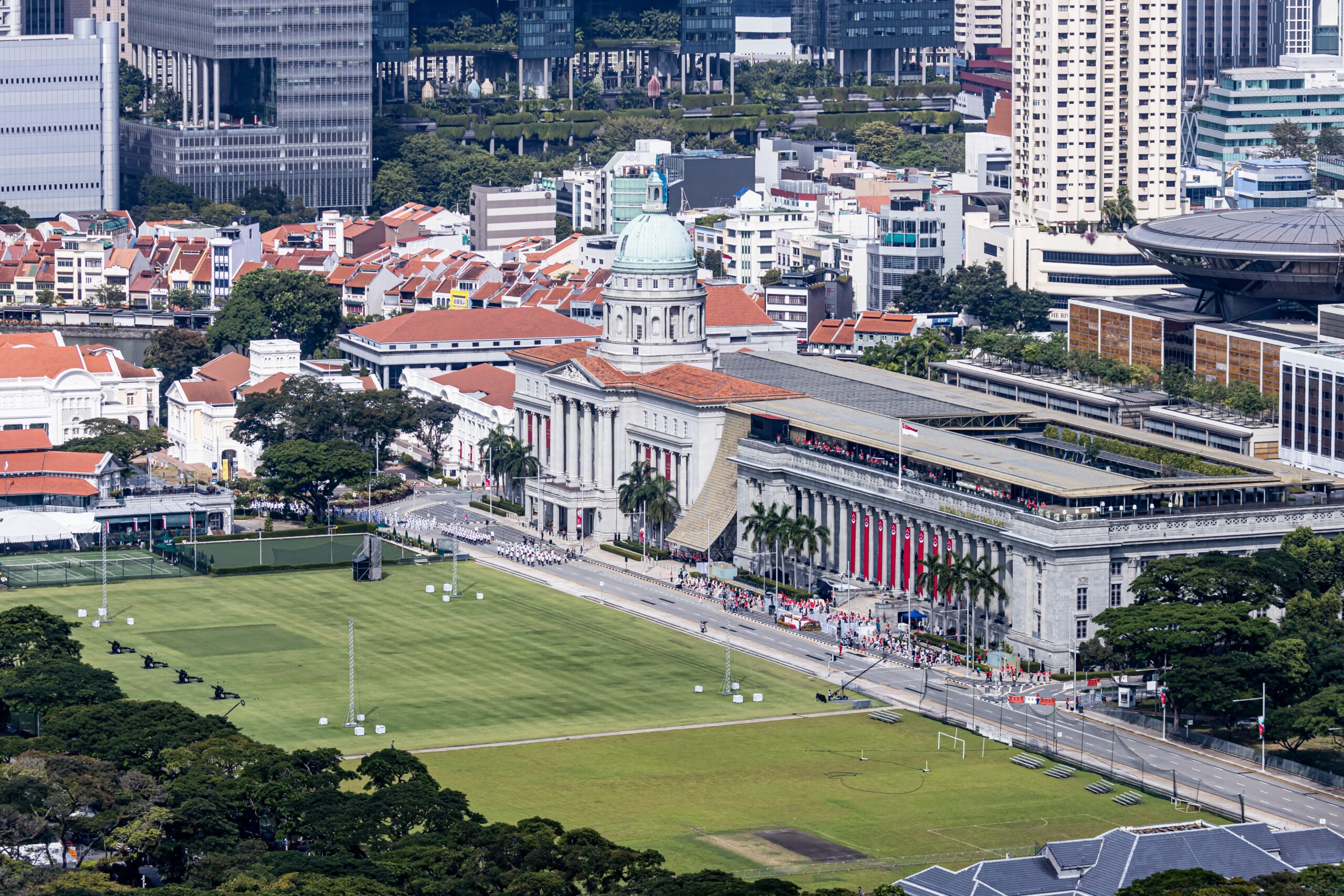In the last three and a half decades, Nigeria has witnessed a lot of rapid changes in the socio-cultural and technological spheres. Having secured her independence from Britain in 1960 and also subsequently coming to the throes of becoming one of the oil-rich countries, things have never remained the same for Nigeria since then. The article examines anti-social behaviour among students in Nigeria.
The oil boom of the 1970s and the massive urbanisation and construction works that followed in its wake appeared to have had an indelible impact on the socio-cultural, technological, and other changes that we are still witnessing today.
With increasing improvements in communication, transportation, educational infrastructures, and the upsurge in the awareness of the existence of virtually unlimited opportunities both for studying abroad and for working in the emerging urban areas in Nigeria.
Western culture, being a dominant culture and value system, started gaining more prominence and acceptance among Nigerians. Thus, Nigeria was caught in the web of two divergent cultures and value systems, and the centre no longer holds- since this contact between Nigerian and the West involved the juxtaposition not only of the physical aspects of the Western and the Nigerian cultures but also of the values which the two cultures upheld.
The Nigerian socialisation process places more emphasis on the development of social intelligence than on technological intelligence by encouraging such qualities as respect, obedience, and conformity with societal values and norms at the expense of curiosity, exploration, originality, and individualised construction play.
This is attested to by Mundy-Castle (1994) and is said to be true of the socialisation process in non-Western traditional cultures. The contemporary Nigerian socialisation process is more Western-oriented than that of the essentially pre-independence traditional patterns. By the same token, our formal education system today is patterned after the Western education system.
Curiously, exploration, originality, and independence are the ‘in-thing’ today and have been very instrumental in accentuating knowledge explosions in all sectors of our national life.
Added to the above is that parents are increasingly shirking their primary responsibility of moral upbringing of their wards, especially at the very impressionable periods of their lives. The quest for material wealth acquisition appears to command greater attention from parents than the careful upbringing of their wards.
Our ill-prepared school system and unfit house-helps have inadvertently taken over the task of socialising the Nigerian Youths.
Consequently, various types of anti-social behaviour are increasingly becoming the ‘Youth Culture’ in Nigeria of today. This unsavoury situation is generating a lot of concerns today among all well-meaning people, le and that is why I have to reiterate that our Lecture topic today is very germane and timely.
Anti-social behaviour could be taken simply to mean the overt and covert actions of a person that are either in conformity or at variance with the societal norm(s). Certain forms of behavioural oral standards are acceptable in every society. Behaviour is usually the product of the culture, customs, mores, and values of each Behavioural psychologists have argued that the nub of most social problems concerns how morality (i.e. values) is judged in society and who is to decide.
Anti-behaviour, therefore, is a behaviour that deviates from the acceptable Societal norms and values. Interestingly, antbehaviour behaviour acquires different meanings in different societies, so that they are variously inhibited, publicly exhibited, or kept secret.
It is common knowledge that most anti-social behaviours are at best viewed as a form of rebellion against society’s acceptable standards. It suffices, however, to note that such antisocial behaviour could be in the form of struggle and even rebelliousness against injustice and dehumanising social conditions of our educational system. This view is truly at variance with the traditional outlook; in a sense, it is anachronistic in that it tends to view stress and conflicts as a positive and perhaps, inevitable feature of human existence, as a positive and perhaps, inevitable feature of human existence than an irredeemably negative one. Let me affirm at this juncture that it is often difficult to disentangle behaviour in young persons.
Anti-social behaviour amongst students includes stealing, hooliganism, cheating, lying, examination malpractices, demonstrations, drug addiction and peddling, sexual promiscuity, homosexuality, lesbianism, abortion, cult membership, disobedience to constituted authorities, and all other forms of indiscipline. All these portend a serious malaise in the moral fabric of our country.
The students are part and parcel of our larger society and since parents hardly have the time to give desired leadership in the moral training to our youths while our schools are, in the main, ill-prepared and ill-equipped for good social behavior training of our youths, the incidence of anti-social behavior among our students, which we are more often than not influenced by peer group, cannot but be on the upward swing as it is today.
The reasons for this development, though not exhaustive, are not far-fetched. Society’s built-in social controls aimed at motivating people to conform to acceptable standards are fast becoming inadequate as the trends of anti-social behaviour prove too dynamic for such coping mechanisms. The cultural transmission through personal and group contact is thus being redefined.
Trends in anti-social behaviour among students
First evident look: The pre-independence and pre-oil boom years in Nigeria did not witness the diverse and escalating trends in anti-social behaviour characteristic of students today. Secret cult membership, rape, hooliganism, drug abuse/addiction, examination malpractices, and other vices were not rampant among students then.
That former situation, unfortunately, had been seriously altered. The Nigerian traditional society, characterised by a cohesive bond as ‘‘we’’ feeling and kinship networks of respect and total conformity with the will of authorities, honesty, and hard work, appears to have been gradually replaced with increasing urbanisation and industrialisation.
The associated individualistic feeling of less supervision and control, and the independence characteristics of urban living. Second, the evidence: In our schools today, the student population has grown beyond all projections and has also become ‘urbanised’ in character. The incidence of drug abuse, rape, cultism, examination malpractices, hooliganism, aggression (bullying), hyperactivity, school phobia, rubbing of feet on the floor, and other disruptive behaviour appears not only to be on the increase but the order of the day among our students.
Third evident look: Events in the last few years have shown that the most prevalent and unabated aspects of anti-social behaviour exhibited by students are those relating to examination malpractices, rape, and cultism, especially at the secondary and tertiary levels of the nation’s education system.
The most alarming in recent times, however, is cultism; Secret cult gangsters who are supposed to be students have taken over campuses of the country’s tertiary institutions and made life insecure for both fellow students and lecturers. They take possession of dangerous weapons like guns, matches, daggers, arrows, etc, which they use freely to confront one another and oppress other members of the academic community.
It’s, however, disheartening to note that concrete and stern measures have not been put in place by parents and school authorities, as well as the government, to check this anti-social behaviour being exhibited by the students.
The resultant effects of this are the growth in the number and membership of these secret cults on our various campuses. Also, the cults no longer operate in a clandestine manner but openly. The recent strike by cult gangsters at the Lagos State University is a case in point.
Conclusion
Motives for anti-social behaviour can be highly varied. In some cases, they could reflect boredom and a juvenile search for excitement. These could be considered analogous to panty raids and other forms of adolescent mischief for the sake of it; in other instances, they could reflect mainly hatred of parental authority, a deeply troubled or disturbed personality, or a means of achieving notoriety. However, in many instances, they also express sensitivity to injustice and the desire to improve the world and make it live up to the highest social ideals. Read further on this page.










